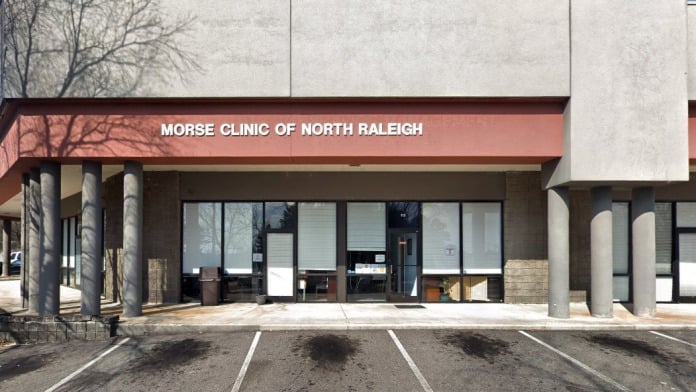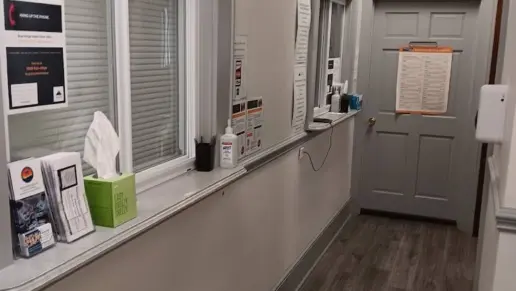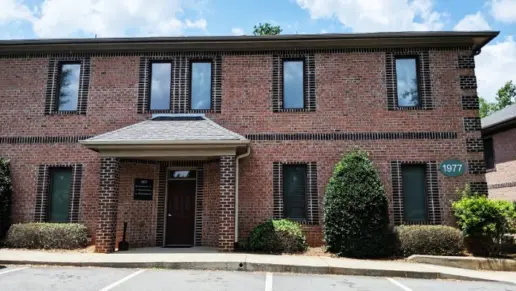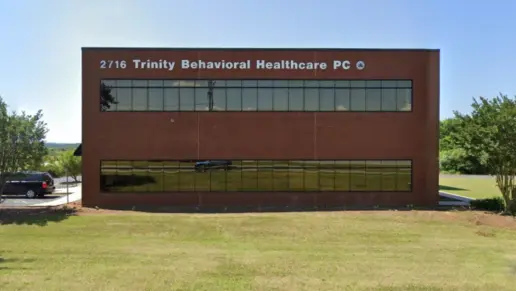About Morse Clinic Of North Raleigh
The Morse Clinic of North Raleigh is an opioid treatment center in Raleigh, North Carolina. They specialize in treating people who are addicted to opioids specifically. Opioids are a class of drugs that include heroin, fentanyl, oxycodone and morphine. At this clinic, they treat opioid addiction with medication and individual and group therapy. If you also have co-occurring psychiatric needs, they can either coordinate care with your psychiatrist or you can see one of their psychiatrists.
This clinic treats opioid use disorder with medications like methadone and buprenorphine. These are drugs that fill the same receptors that the opioid drug would have filled. By using these medications to provide a safe way to prevent people from going into withdrawal, people can avoid dangerous situations and conditions that are associated with seeking and using illicit drugs. People can then direct their time and energy to living in recovery.
To receive buprenorphine or methadone, they have you come in for daily dosing. Daily dosing is appropriate for people who might not do well if they have access to take home medication. This might be because you are very early in recovery or because you relapsed and need more intense treatment. Daily dosing also helps to prevent the diversion or selling of these drugs.
A new treatment option that they’ve introduced at this clinic is Sublocade injection. This is a buprenorphine injection that lasts a month. Because it’s administered by clinic staff, it can’t be diverted or abused. It combines safety with the convenience of only having to come to the clinic once a month.
If you’re ready to stop using opioids but don’t know where to start, a clinic like this is a good option because they’re equipped to take people who are in early recovery using the treatment strategies described above.
Rehab Score
Gallery

Location
Accepted Insurance
Other Forms of Payment
Private insurance refers to any kind of healthcare coverage that isn't from the state or federal government. This includes individual and family plans offered by an employer or purchased from the Insurance Marketplace. Every plan will have different requirements and out of pocket costs so be sure to get the full details before you start treatment.
Self-pay involves paying for treatment out of your own pocket. You can use savings or credit, get a personal loan, or receive help from family and friends to fund your treatment. If you don't have insurance or your insurance plan doesn't cover a specific program, self-pay can help ensure you still get the care you need.
Medicare is a federal program that provides health insurance for those 65 and older. It also serves people under 65 with chronic and disabling health challenges. To use Medicare for addiction treatment you need to find a program that accepts Medicare and is in network with your plan. Out of pocket costs and preauthorization requirements vary, so always check with your provider.
Medicaid is a state based program that helps lower-income individuals and families pay for healthcare. Medicaid covers addiction treatment so those enrolled can use their coverage to pay for rehab. When a program accepts Medicaid the client often pays very little or nothing out of their own pocket.
Addiction Treatments
Levels of Care
Treatments
A combined mental health and substance abuse rehab has the staff and resources available to handle individuals with both mental health and substance abuse issues. It can be challenging to determine where a specific symptom stems from (a mental health issue or an issue related to substance abuse), so mental health and substance abuse professionals are helpful in detangling symptoms and keeping treatment on track.
Opioid rehabs specialize in supporting those recovering from opioid addiction. They treat those suffering from addiction to illegal opioids like heroin, as well as prescription drugs like oxycodone. These centers typically combine both physical as well as mental and emotional support to help stop addiction. Physical support often includes medical detox and subsequent medical support (including medication), and mental support includes in-depth therapy to address the underlying causes of addiction.
Programs


Clinical Services
Group therapy is any therapeutic work that happens in a group (not one-on-one). There are a number of different group therapy modalities, including support groups, experiential therapy, psycho-education, and more. Group therapy involves treatment as well as processing interaction between group members.
In individual therapy, a patient meets one-on-one with a trained psychologist or counselor. Therapy is a pivotal part of effective substance abuse treatment, as it often covers root causes of addiction, including challenges faced by the patient in their social, family, and work/school life.
Accreditations

The Commission on Accreditation of Rehabilitation Facilities (CARF) is a non-profit organization that specifically accredits rehab organizations. Founded in 1966, CARF's, mission is to help service providers like rehab facilities maintain high standards of care.
CARF Accreditation: Yes
Accreditation Number: 273570
Contact Information
3209 Gresham Lake Rd #113
Raleigh, NC 27615



